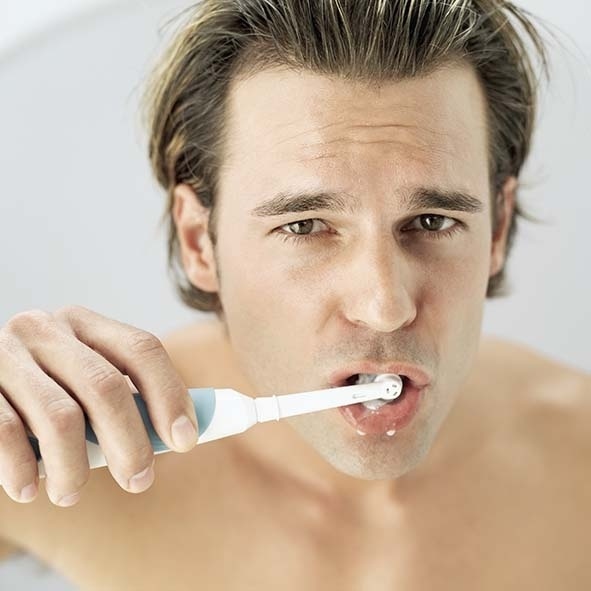
Brushing your teeth is one of the cornerstones of good oral hygiene. We've all been told to brush our teeth twice a day for two minutes, but even the most avid brushers can end up with cavities. How does this happen? Well it's more than likely that you're making some pretty common brushing mistakes. It may be hard to break the habit of brushing lackadaisically, but if you're not focusing on your technique, then you might be ignoring the oral care you need. Here are five common brushing problems to avoid:
1. You're using the wrong toothpaste and brush
Opting for a medium or hard bristle brush may seem like nothing more than a personal preference, but the bristles may not be pliant enough to reach all the gum tissue in your mouth, according to Men's Health.1 What's more, these brushes are firm enough that it can encourage your gums to recede if you're in the habit of brushing too hard. Also, toothpastes with baking soda can be abrasive and wear down on your enamel over time.
"Dentists recommend brushing two to three minutes."
2. You're not brushing for two minutes
Two minutes seems like no time at all in comparison to all of your other daily obligations. However, odds are you might be short changing yourself if you don't make a point of timing it out. Some dentists even recommend brushing for three minutes. Get out a stopwatch next time you brush your teeth and go about your routine as usual while timing it out. If you're done before it reaches the two minute mark, use a stopwatch or timer regularly to ensure you're brushing for long enough.
3. You're missing spots
Brushing can quickly become a mundane routine, but if you're not focusing on cleaning every spot in your mouth, there's likely a few gaps in your technique. Make sure to brush your gums, tongue and the insides your teeth, as these are spots where bacteria can quickly gather. You Beauty, a lifestyle publication, suggests looking in the mirror while you brush so that you can see where you are brushing your teeth.2 That way you can see the spots that you're overlooking.
4. You're not rinsing
When you brush your teeth, a lot of plaque gets jostled around the mouth, so if you don't rinse afterward a lot of it might still be lingering. Make sure to rinse out all the plaque residue and use a bacteria-killing mouthwash for best results, as mouthwash contains fluoride.
5. You're brushing too hard
Finding the perfect balance of how hard to brush your teeth can take a little practice. However, brushing too vigorously can weaken your enamel and result in sensitive teeth, receding gums and other oral health issues. Remember, if you're bending the brushes against your teeth you're brushing too hard. When bristles start to fray or fold - about every three or four months - replace your toothbrush.
1 "6 toothbrushing mistakes you make every morning," by Ashley Balcerzak, Men's Health, March 20, 2015. http://www.menshealth.com/health/how-to-brush-your-teeth
2 "Eight bad brushing habits that harm your teeth," by Amanda Schupak, You Beauty, April 5, 2012. http://www.youbeauty.com/health/eight-bad-brushing-habits-that-harm-your-teeth

